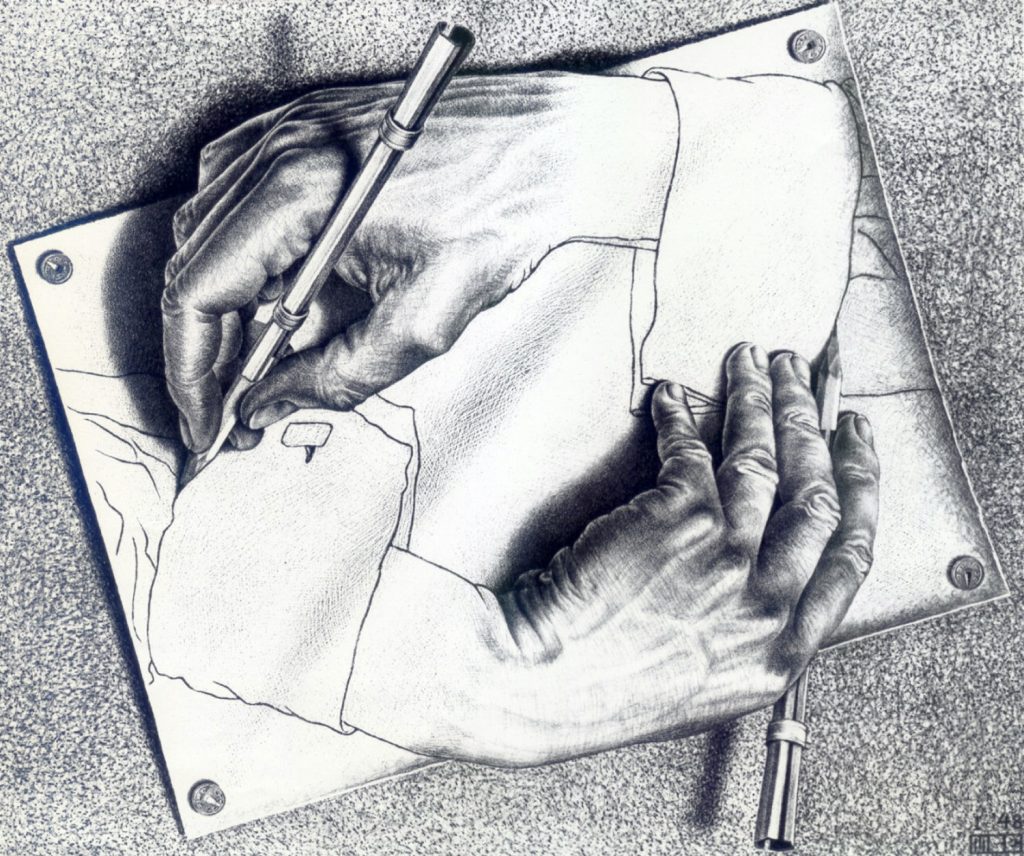Video transcription
“Self authorship” is the underlying philosophy of the Smartstart program and I have used the term “Self author” and “Self authorship” several times, but haven’t actually explained what it is. And the reason why I bring this up now is because hidden in the term are two important concepts that are important to the success of your practice.
You’ve probably already recognised the most obvious meaning of the term when you look at its component words; “Self” and “author”. To author means to create, so to be a Self author is both for the Self to create, but also that what is created is the Self. By that I mean you consciously create your attention, your choices, your values and beliefs, and ultimately your identity and life outcomes.
Its like one of those Escher drawings where the hand is drawing itself. And the idea of self authorship is built into the very architecture of life. In biological sciences for instance, the term “autopoiesis”, which means “self creation”, refers to biological systems, like cells, that maintain themselves; even our cells self author.

There are two other non-obvious meanings in the concept of “self authorship”. The original meaning of “author” is related to the word “authentic”. This of course means something that is not a copy of something else; something original. So authenticity is also implicit in self authorship. The third meaning of the term is “authority” which means granted power to command or direct. So altogether self-authorship is the idea that we are each the authentic authority and author of our own lives.
But our education system and even our culture don’t do a very good job at supporting us to develop this capacity. The biggest problem here is around authority. Authority is a feature of relationships, and it’s something that can be granted to the other. For instance with our Hero selves, a compliant Grunt implicitly grants authority to the Master. And this is appropriate and necessary in order for us to do what our selves have agreed is important.
The trouble however that we have a cultural habit that unconsciously grants some of our authority outside of ourself. Whenever we act out of a “should” or the status quo, or because we want to “please” someone else, we have implicitly given our authority to them. We have indirectly let them decide what we will do.
Well, what’s this got to do with practice you might ask? Well … everything. Because a practice starts with the voice of the Master who asks and then affirms “what is important”. The critical question here is “is this the voice of my Master, or someone else’s?”. When we choose a practice because we feel we should, or to please someone else’s expectations, then it is their Master that is giving directions.
And remember, the energy that fuels the practice journey comes from the outcome you desire. If this is not your own authentic voice and genuine desire then you will run out of the motivational fuel you need to stick at the practice. But conversely, every time we listen to what is authentically important to ourselves and affirm that in the action of our practice we grow our authority, authenticity, self authorship, and our life.

